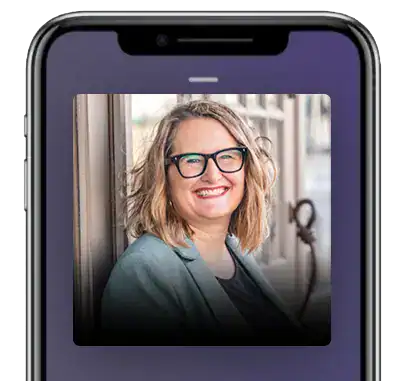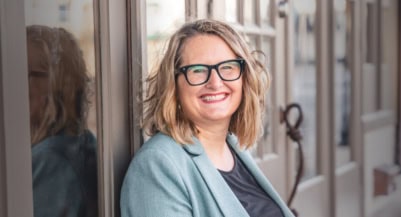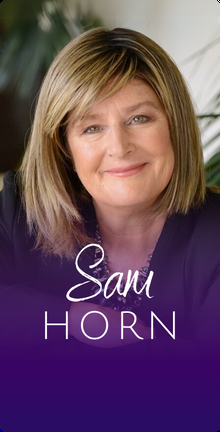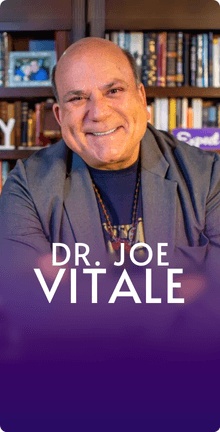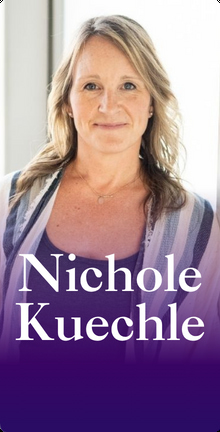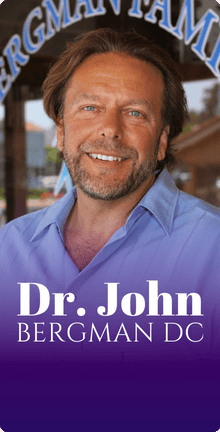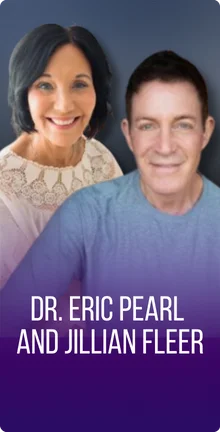In this Episode
- [02:05]Mary DeMuth reveals her rapid writing technique, likening it to physical fitness—consistency builds strength, but breaks weaken the skill.
- [07:20]Mary advocates for mindful media habits and breaking free from the addictive cycle of doom scrolling.
- [14:27]Mary recounts collaborating with her daughter on a children’s book and Bible storybook, acknowledging it’s outside her usual expertise.
- [16:20]Mary traces her passion for biblical and spiritual writing back to decades of church involvement and life experiences as a missionary in France.
- [27:24]Mary champions the power of community in trauma recovery, arguing that healing requires trusted relationships and shared burdens.
- [29:49]Mary reflects on how group prayer transformed her life and underscores the profound impact of being heard and believed.
- [33:47]Mary describes her evolution from author to literary agent, driven by a desire to mentor emerging writers and create lasting impact.
- [37:16]Mary recommends “The Book of the Dun Cow,” sharing how its allegory helped her overcome fear-based perceptions of God.
- [39:05]Mary offers practical advice for aspiring authors and reveals the origins of her daily podcast “Pray Every Day,” born from a mastermind challenge she initially resisted.
- [42:03]Mary celebrates the global reach of her podcast, highlighting transformative feedback from listeners across different countries.
- [42:27]Mary demystifies book publishing by introducing Amazon’s KDP platform as an accessible, cost-effective way to self-publish.
- [44:20]Mary provides multiple connection points for listeners seeking her guidance, resources, or creative work.
Mary, it’s so great to have you on the show.
Hey, it’s so great to be here. Thanks for having me on.
You are a prolific author—52 books. I can’t even wrap my head around that. How do you do it? What’s your secret to produce so much creative work?
Well, I am a very fast writer. Writing to me is like a muscle. When I’m in a good routine and working out well, and then I take a couple of weeks off, it’s harder to get back into it, as you know. Maybe you don’t know, but that’s how it is for me.
As a consistent and long-term writer, I’ve just learned how to get words on the page quickly. It’s a skill set I’ve developed over the years.
As a consistent and long-term writer, I’ve just learned how to get words on the page quickly. It’s a skill set I’ve developed over the years.
What do you think about this whole AI thing and people using AI to write their books and even illustrate them? It’s a brave new world, isn’t it?
It is, and I think all of us in any field should be concerned about other things, other than humans taking over things. I think we’re always gonna be needing creativity, but I think AI sometimes makes us a bit lazy.
We’re seeing that in college papers and things like that. It’s a lot easier to have someone else write your paper for you. We knew that back in the olden days, when we had someone else write our papers for us, but having AI do it doesn’t help your mind make connections.
Writing is the world of grabbing information from different parts of your mind and all the things that you’ve studied and synthesizing it in your head. That is a discipline. If you outsource that, you’re going to be missing part of the intellectual process.
While I love AI for brainstorming—it’s terrific for brainstorming—I do not like it for a final product. Of course, Amazon now asks, “Is any part of this AI-generated?” I can boldly and confidently say, “No, not for me,” but we do need to be aware of it.
Engaging in activities that foster connections every day can help sharpen your mind. That’s why they recommend doing puzzles and similar activities.
With AI, it actually makes your brain lazy. Studies from MIT have shown that parts of your brain will become less active. There’ll be less brain flow or blood flow in your brain. It will turn off certain critical thinking centers if you over rely on it. It’s not something we should use as a crutch.
Exactly. I think as you grow older, too, we’re always looking at hacks to make sure that we’re as sharp as we can be in our later years. That is not a good way to do it. You need to be using your mind. That’s why they say do puzzles and things like that, because you need to make those kinds of connections every day to sharpen your mind.
But on the other hand, somebody might say, “Well, I’m already overwhelmed with so much information. I just don’t know how to keep up. I have to use AI in order not to get left behind.”
I know you have a book about overwhelm. What do you say to somebody who has that argument?
I think there’s healthy ways to use AI for sure. If you’re using it to make your life a little easier—you and I are in the podcast space, having AI summarize our podcast is really lovely, and it eliminates the need to pay for someone to do that. Those kinds of things, I think, are lovely and a great way to use AI as a tool or as an assistant to what you’re already doing.
Whenever we adopt new tools, we need to ask: “Is this truly benefiting my life, or am I just becoming enslaved to it?”
I’m not against that at all, but I do think we need to ask the question intelligently, “Is this really benefiting my life? Is it adding something to it? And am I becoming enslaved to it?” Which I think is a whole other question to ask as well.
Let’s talk about overwhelm in the context of your new book. Your new book is called what?
It’s called The Most Overwhelmed Women of the Bible and how their stories teach us to find peace. This is the third in a series. It started with The Most Misunderstood Women of the Bible, then The Most Overlooked Women of the Bible, and the last one is The Most Overwhelmed. I took women from the Bible that we typically don’t hear about and looked at their stories.
In this case, I looked at 10 women who were overwhelmed, and then I fleshed out their stories. I’m also a fiction writer. So I fleshed out their stories as best as I could so that the reader could be like, “Oh my gosh, these are actually real people that endured overwhelm.” And then I go put my nonfiction hat back on and say, “Okay, what does this mean for us who are overwhelmed?” It’s important, I think, for us to remember that we have used this word “overwhelm” a lot, but that whelm is a word.
And whelm means overwhelmed. So it’s like over overwhelmed. I think as a society, we are facing whelm and overwhelm in profound ways. And really, it has to do with the amount of information that we are receiving on a daily basis, and just sifting through it and trying to figure out what to keep, what to let go of.
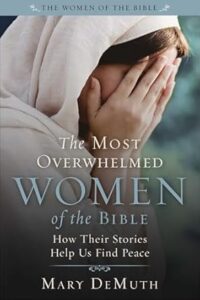
You see a lot of movements now, like homesteading and things like that, where people are like, “I’m sick of all this technology. I’m gonna live off the grid.” And that’s a response to this just complete overwhelm. Plus, there’s this feeling, especially when we’re bombarded with news, that what can we do about it? Okay, I know that there’s a crisis across the pond. But I feel helpless, and it just makes me sad. So then what is the answer to that?
What is your answer to that for you personally?
I have to monitor my media pretty closely, and I do look at my phone usage a lot because I think there’s a tendency and we’ve learned about this with dopamine hits in social media, when you are scrolling, there’s a dopamine hit every few seconds and we’ve kind of gotten into this addiction cycle of doom scrolling. I think back even 10, 15 years ago, I was not grabbing my phone and scrolling. I think about how much time I’ve wasted.
And part of this overwhelm is learning how to quell that and to be a little more intentional about what I do with my time. Also, it’s always better to just be positive instead of like “I’m going to reduce this, I’m going to up my time outside or my time with real people in real life.” And that makes a rich life. The more you add of the good things, the less you’ll need of the things that are not good for you.
I was just reading on their subreddit on Reddit called Get Disciplined. And I was just reading a post on there about this person who has a 96-year-old grandmother who’s giving advice about how to cope with the world and with being more intentional and more disciplined. And her secret was really simple, but really quite profound and cool, that is to separate the emotions that you’re experiencing from the actions that you’re trying to take.
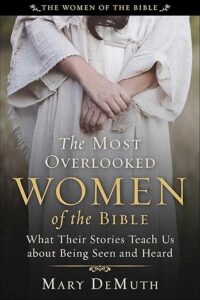
If you’re feeling overwhelmed, if you’re feeling stressed, if you’re feeling afraid or judged or hurt or criticized, that might prevent you from doing something, but it’s not actually preventing you. You can still experience the emotion, feel the feels, and do the thing anyway.
So the way she explained it to her grandchild was just do the thing and feel the feeling. If you’re feeling overwhelmed, if you’re feeling stressed, if you’re feeling tired and you want to procrastinate, if you want to doom scroll or watch some funny cat videos or whatever instead of doing the thing that you should be doing, that you want to be doing, but you’re feeling kind of interfered with, just do it with the taking in that emotion and giving it legitimacy and not running from it. That resonated for me. What do you think about that?
I would agree, and I’ll take it a step further, as a writer, for me, the importance is to process it. Sometimes I just need to sit down and write a paragraph about what I’m feeling at that moment. It gets it out of me. It’s no longer inside of me all turmoil-y. It’s out on a page. You can also do the same thing if you’re not a writer, with a voice text to yourself, just record. “I’m really frustrated right now, I cannot believe.” That’s an alone way to do it.
The best way is really to call a friend or a family member and say, “I’m really mad, I’m really upset.” Just express it, get it out. And once it’s out and dealt with, someone else can carry it or it’s out there in the world to be carried, then you have a lot clearer head to be able to go ahead and do the task that needs to be done.
When emotions weigh heavily, the healthiest step can be as simple as calling someone you trust and saying, ‘I’m upset. I need to let this out.’
Do you have a particular set of rituals or routines that help you to get into flow and not procrastinate? Writing is a hard thing for many of us to do, me included. I much prefer getting on stages and speaking to an audience than to sit in front of a blank page and start writing something. What are some of your tips?
As I mentioned, I was doing this for a long time. I’ve been writing for a really long time. And there was about a decade where I was not published, but I was writing unpublished words. I was giving myself deadlines and training my muscles to always meet the deadline early, even if there was no deadline. I just forced myself. So all of that kind of contributed to that 2,000, 10,000 hours or whatever it was that Gladwell talked about.
I did that for a decade. When the time came for me to have deadlines, actual deadlines, it really wasn’t a problem, and I’m a bit logical about how I meet my deadlines. Most non-fiction books are 50,000 words. I can very easily write 2,000 words a day, which is about 10 to 12 pages.
If I’m writing 2000 words a day, that’s 10,000 words a week. In five weeks, I’ll have a rough draft, and I’ll set it down for a week or two, I’ll come back to it, edit it and hand it in. Usually, within about two months, I can write a book. Fiction’s a little bit different. It’s 80,000 words to 100,000. So it takes a little bit longer, and it’s a little harder because you’re trying to create a story world. A lot more of your head is involved in that.
If you want to write a book and you can’t contain it anymore, there is always a way to get it into the world. The obstacles are smaller than you think. Share on XIn nonfiction, I outline and then I say, “Okay, I’ve got to write 2000 words a day.” It might end up being like half a chapter a day if there are 20 chapters or 10 chapters, and I just do it. Another thing that I do is I think it’s really important for us to keep a visible record. I create a spreadsheet with, if it’s a 50,000-word book with 50 blanks on it, each one representing 1000 words.
Whenever I finish 1000 words, and usually at the end of the day, it’s 2000, I’ll color in that blank. And I can physically see that I’m making progress toward the end goal of 50,000 words. That’s how I go. That’s my process of writing a nonfiction book.
Where does intuition fit into this? You must get inspiration from above while you’re writing, or maybe to come up with the idea for the book in the first place. Where do you get the ideas? How does intuition work for you?
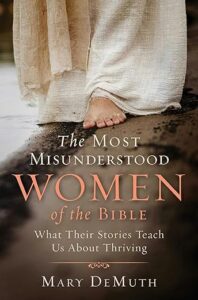
A lot of times in nonfiction, I write because I’m angry. There’s something out there that is not right, and I’ve been milling about it for a long time, and I have to kind of get it out, my anger. I guess I’m just a super angry person after 52 books. But there’s some sort of injustice that drives it. So that happens. In terms of working on creativity, I just absorb myself in that topic for that whole time.
For instance, I wrote a book on a 90-day reading through the book of Romans. Someone would read a little bit of it every day, and I’d have something to say about it. In preparation for it, as I was working on knowing what I wanted to write, I read the whole book of Romans, which is a lot of chapters. I read it every single day for 90 days to get my mind wrapped around that book.
It took me about 45 minutes a day, and I would just read it every single day. So there’s like that discipline side of it. I will also have a folder on my desktop, and I’ll just start throwing everything in there: articles, links, anything, a picture, just so that all that inspiration is there, so that when I sit down to write, I’ve got it all, at least, maybe not even organized, but just at least there.
And you’re working on a children’s book?
Yes, I finished that one, but I’m writing a Bible. I wrote a Bible storybook as a literary work, and I’m also a literary agent. As a literary agent, I’m representing a film that releases in September, and as the agent, I’m doing all the ancillary products for that. All the literary products. One of them happened to be one that I co-wrote with my daughter, and that will come out next spring. It’s not my stronghold, and that’s why I looped her in. Because she’s better at it than I am, it was fun to have a project together with her.
An untold story never heals. Share on XHow old is your daughter?
My daughter’s 32 and she works in the publishing editing industry. It was a nice logical fit for us to do that together.
So what’s different about a children’s book that is not something that might not come as easily for you?
Because I’ve been writing 50,000-word books, 2,000-word books or 1,000-word books, they’re just a different animal. I will often, as a literary agent, have people approach me saying, I wanna write children’s books, and for the most part, I will not represent them because it’s just not my expertise to create a story within a short period of time like that, in that very truncated, a thousand words or less, usually about 750 for most picture books.
You have to have so much in there, you have to do it to grade level, and it has to be page-turning; there’s just a thousand things to know, and so it’s not my expertise. I recognize a good one when I see it, but it’s a different level. It’s like if you were writing long operas and then you were asked to write a pop song. Two different kinds of genres of writing.

Now, why so many books about the Bible? I think most of your books are spiritually focused, right?
Yes, that’s my expertise and my bent. I’ve been doing this since 2004. My first book was contracted. I’ve been writing about two to three books a year, and I started off primarily as a novelist. I was writing these page-turning Southern fiction, women’s fiction, book club fiction, that kind of thing.
But I found with my literary agent at the time that I was selling better and I had more audience in a nonfiction audience. That just kind of started on a trajectory there. Since I’ve been in a church for a long, long period of time and I’ve been a lifelong learner and we were church planters in France as a family, there’s just a lot that I’ve been able to bring to the table about all sorts of kind of issues about spirituality, what does it mean to love God love others, all of that kind of stuff.
What’s your most profound moment or experience of God or of divine intervention or something like that?
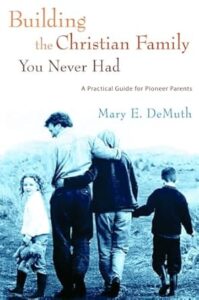
When we were on our way to move to France, I was a bit terrified that I was gonna lose my writing career, and the first book that I wrote was called Building the Christian Family You Never Had, when I was in the field. To be able to say the story of what do you do when you haven’t had an example and you want to start a new way with your kids, something different than how you were raised.
I had to still tell that story. I was absolutely terrified, too, because it’s a pretty complex story with lots of trauma, and one of my parents was still alive. As I talked it through with my editor, I said, I wanna give you all the permission to just pull back everything. Like if it’s too much, pull it back. But I also had to remove my loved one from my shoulder, because if they were there, I would be writing scared.
I gave myself permission in the one chapter to put it all out there. And my editor, who doesn’t know me, pulled me back, which is what I wanted him to do. But then at the end of that, he said, “For legal reasons, we need you to share this with that parent.” So I did, and I was really stressed. I thought for sure that the parent would say, “This isn’t true.” Or they would withdraw their love from me.
It took about three weeks for them to respond to the email with the chapter. I was so terrified. And finally, I got the email back, and they said that it didn’t happen. And they withdrew their love from me. The very worst thing in the book of Job, it says, the very worst thing that I worried about has happened to me. Basically, that’s a paraphrase, but that thing that your greatest fear is, you fear it so much that it happens. And what was beautiful about that was that I realized I was still standing, that I endured that accusation of lying, and I endured that revoking of love. So I realized at that point I had made my relative about 48 feet tall, and God just kind of shrunk them down to the appropriate size.
That was the catalyst for me to then be able to write a memoir called Thin Places, which is my whole story. It’s still out there, it’s still selling, and it’s probably my most raw, poignant, and poetic book that I’ve ever written. But had I not done the one chapter and had all of that happen, I never would have had the guts and the stamina and the ability to write an entire book about that.
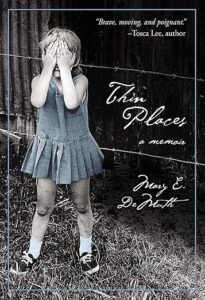
So, are you not in contact with that parent now?
No, I am. That has been lovely. It’s been reconciled, and what I’ve told audiences, because I’m also a speaker, I thought that telling the truth would ruin everything. Because in those kinds of difficult family settings and systems, that’s this underlying rule that you hear all the time. Don’t tell, don’t talk about it. Just keep it, shove it down, make it worse. Just keep ‘shh’ and be quiet.
I knew, though, that for my own mental health, I had to be honest about the story. There was a period of time when there was a completely broken relationship for several years. But thankfully, in the past couple of years, there’s been a reconciliation. And I realized that telling the truth didn’t ruin everything. It actually gave us a basis by which to start afresh.
That doesn’t always happen. So I’m not going to make that promise to listeners today that if you tell the truth, they’ll eventually come back to you, because some people will not. This has just turned out to be lovely, and there has been reconciliation.
Wonderful to hear that. What happened to that chapter that you had to present to your parent in order to get approval? And of course, that approval was not given. Did that chapter have to get removed or rewritten, or was it published anyway? What happened?
No, it was definitely published anyway. They just needed them to know that it was out there, but they trusted me. And I’ve been telling that story for a decade and a half by that time. I hadn’t put it in print, but I had been telling it, and there was a lot of people that could justify and could say, “Yes, that’s absolutely her story. She’s been telling it forever.” So yes, it was fine. But just for legal reasons, she needed to know; she didn’t need to be surprised about it.

So I’ve heard the term “thin places” once before, when I interviewed Joe McQuillen on this podcast, and he explained that his son, who passed in a tragic accident, communicates with him through psychic means, and it’s a thin place going to the room, his son’s bedroom.
At about three in the morning, to receive information from his son, he writes it down in his journal, and he can have whole conversations with his son and that thin place is the son’s bedroom. I hadn’t heard that term before, other than through Joe, but I’m curious, what is thin place for you and do you believe in what I just described from Joe McQuillin?
Yeah, so it’s actually a Celtic term, and it is in relation to God, not in relation to a relative that passed away. What they say is in Celtic spirituality, there were physical places just like this man with the room, there are physical places on earth where they say that the veneer between heaven and earth is thin, therefore you can, it’s kind of like you can, it’s plastic you can see through it or you can experience the divine in this, like at this outcropping of rock or this mountain or at this lake or whatever.
Telling the truth won’t ruin everything; it actually gives you a basis by which to start afresh. Share on XSo I took that term and I caused it to be a metaphor for me of all those places in my life, those thin places where God came near. Almost always, it was in the midst of some sort of suffering. It was a really interesting exercise to look back over my life and say, “Oh my gosh, yes, when this happened or my father killed himself,” or whatever that happened, I had these little glimpses of God in those really desperate moments.
That’s really profound, and a lot of people won’t be able to claim that they can do that, but that’s amazing. Have you experienced thin places in the physical world? For example, I’ve experienced near King David’s tomb. There’s this wall just on the outside of the grounds, and it’s been known as this little spot for hundreds and hundreds of years, and I did have an experience there. It definitely felt like that was a thin place, kind of like a portal or something.
Yeah, and I think you know there are moments in our lives, too, where we’re more open to that as well. I have been teaching a two-week writers’ intensive in Switzerland for the past seven or eight years, and that place, you can look across the lake and see the Alps and behind you are the Jura Mountains, it’s just in a breathtaking place.
There’s also the majesty of beauty that can be a part where you just feel like, “My gosh, I can be quiet for a moment. I can be in awe of what has been created and experience God in that place as well.”
So on your homepage, you have this thing about ‘restory’. Tell us about what ‘restorying’ is and why and how you came up with it.I have a pretty tragic story, but when people meet me now, they would never guess that that was my story. And that is the act of ‘restorying’. You may have had trauma in your past, you may have had abuse in your past, you may have walked through the valley of the shadow of death, you may have lost a loved one, and there is a way to get through to the other side.
It’s pretty messy, and it’s not like a formula, but in order to be ‘restoried’, we have to be willing to do kind of like what I did with that chapter I talked about. We have to let it out. I often tell audiences that an untold story never heals. And so for some listening, they might think, well, I’ve been traumatized by people, so I don’t wanna tell my story to people, because people are bad.
My coaching at that point is to at least get it out of yourself, write it down, speak it into a recorder as I talked about earlier, so that it’s no longer part of you. What happens when we don’t heal from our stories and when we don’t talk about them, it’s like the very common metaphor of the beach ball in a pool where we’re strong. It’s not hard to submerge a beach ball for a long period of time, but eventually, we can’t forever and it pops up because it’s full of air.
If we shove pain down and try to pretend it didn’t happen and never deal with it, that trauma will come out in our behavior.
That story of ours, what will happen is if we just kind of shove it down and try to pretend it didn’t happen and never deal with it, never work through it, never go to counseling about it, all of that, that trauma or that pain will come out in our behavior. And then we’ll look ourselves in the mirror and we’ll say, “My gosh, I had always told myself I would never yell at my kids like my mom did or my dad did. And I just did it. And why did my behavior do that? Why did I do that?”
It’s because there’s un-dealt-with pain. The way to help with that beach ball analogy is to tell the story. That’s to let the air out of the beach ball, and then it is very easily submerged. But we have to work through it before we can move on from it. To do that often involves other people. I often say we are wounded in a negative community, but we need to be healed in a good community. And that’s hard if we’ve only known a bad community and we don’t have a very good picker for good community.
So what’s an example of this, maybe the hardest thing you had to go through, and you got through it on the other side? What’s an experience that you tend to share in speeches or in books?
When I was five years old, I was sexually abused for a year by neighborhood teenagers. It was obviously a very traumatic event. I actually did tell, which is exceptionally unusual. I told my babysitter, she told me that she would tell my mom, but the next day it happened again, and it happened again, and it happened again. So the only way that I was able to mitigate against it and to save myself as a five-year-old was to pretend to sleep at the babysitter’s house.
I saved myself because I could pretend like I was sleeping. But that obviously year-long abuse, sometimes with multiple perpetrators in just a lot of different ways, a lot of venues in the woods, in their house when their mom was making cookies, like just all sorts of terrible things.

That stayed with me as a child. I often felt like I had a come get me sign on my forehead, and I spent my childhood running away from abusers, constantly terrified, constantly worried that it was gonna happen again. When I became a Christian at 15, it was when I began to have the bravery to tell that story, and just telling it to some trusted people was really helpful.
When I made it to college, I thankfully was surrounded by a really great group of people who loved me, who listened to me, who believed in me, and who prayed for me. Those four years, I spent processing that trauma with kind-hearted people. So much so that when I was finally able to afford counseling in my 30s, my counselor said, “How many years of therapy have you had?” Because my story was much more complex and traumatic than that one story.
I said, none, I have had none. And she didn’t believe me, she thought I was telling a joke. I was like, well, then I was perplexed. Well, then why am I okay, so to speak? I could really just go back to that period of time where people listened, prayed for me and believed me. So that’s my entryway into helping folks begin that process of healing, if they’re even terrified of having a counselor or they can’t afford one. It’s just to find really good people and share your story.
Healing doesn’t always start in a counselor’s office. Sometimes it begins by finding safe people and sharing your story with them.
Group prayer is that can change the course of hurricanes. So what were some things that you were able to experience because you had a group of people praying for you? What’s something that sticks out? Maybe that is miraculous.
Just that I was mentally healthy and that I didn’t weirdly go down a pathway of self-destruction, which I should have. That seems like a mundane miracle, but it was a profound miracle for me to graduate from college with honors and to be able to be married and have kids and all of that was just profound. It may be pedestrian, but it was just beautiful.
I think part of that is, as listeners, when we’re talking about when we’re not the person with pain, how important it is to err on the side of belief, and to dignify by asking questions and being having a holy curiosity of somebody’s life. We are all just dying to be heard. We’re all dying to have someone else say, “That’s really bad,” or “I’ve been through that too and it’s terrible,” or “You know, let me carry that burden for you.” It’s profound, and we can do amazing work just by simply listening to somebody else.
How do you make sense of all this trauma now, looking back? Does it feel like a blessing at all? Does it still feel like it’s terribly unfair? Are you angry at God? Were you angry at God? Tell us more about how you processed all that and made sense of it.
It reminds me of watching an episode of Shiny Happy People, the first season, where it was talking about Bill Gothard and his basic life principles. One of the things that he said in there, which was terribly damaging, was that he had made it so that his narrative was, it’s good to have been abused because then you can brag about how different you are now so much so that girls that were within his purvey were jealous of girls that had been sexually abused.
They’re, “I wish I could have that story.” Super twisted, not good at all. Really not the way to view that. So, as I’ve looked back, I have to hold in tension the depravity of those boys that did that thing to me and the goodness of God. It’s not simple, and never would I say that one outweighs the other or anything like that, because the profound question is, where were you when this was happening? I still struggle with that. There is still a holy tension between those two ideas of people that are evil getting away with their evil, at least on this earth.
And there are vulnerable people who are harmed and hurt. There are unjust wars around the world, and people are being starved. There are all sorts of things happening in all different parts of the world where things are unjust. I’ve just had to hold it in tension and really get to that place to say, “I don’t have the answer. I am willing to wait for it.” And the longer that I’ve lived, the more peace I have in that place but I would never tell a victim of some sort of violence to just be like, well it doesn’t really matter or you should be proud of it or all those things because I think we should all wrestle with that question of evil and why weren’t we rescued? It’s a very normal human question to ask.
And when you speak up, do you get haters who are trolls that I don’t know send you death threats or crazy stuff like that?
No, because usually when someone’s talking about their childhood sexual abuse, you’d be a pretty horrible person to throw a dart at her. It’s happened a few times, but mostly people just clam up after that. That would be a pretty awful thing to do.
Love God, and love others. Vertically love your creator; horizontally love the people in your life.
So how did you end up going from all this writing to representing other authors and helping them get their message out to the world?
I have been working with writers since I was published. Starting in 04, it’s just been a natural part of what I’m doing. I’ve taught at lots of writers’ conferences, and eventually I kind of looked at my own mortality and thought, ‘What am I here for?’ Yes, I have these messages that I’m giving. Yes, there are these books that I have written, but what’s gonna go beyond me?
That’s when I just thought of this love and desire that I have, especially for new authors and my desire to pour into them. And so that’s when becoming an agent became a reality a couple of years ago. That is exactly how I run my agency. I’m really filled up with clients, about 40 clients right now, and I’m just it. So it’s me plus 40 clients. I have a fairly unique approach to agenting.
I believe in community, so we meet every month on a Zoom call. I have industry experts come in and teach them. We have a yearly retreat where we get together in person. I do not believe that my authors are competing with one another. We’re actually helping each other launch our books. If I learn something new about building an author platform, I will share it with my authors, and we will talk about it.
I believe in high communication. A lot of authors complain that their agent doesn’t get back to them. And my joke is if I don’t get back to you within a day or so, then come to my funeral because I believe people feel loved when they’re communicated with. I love and want to shepherd my authors. So I am going to communicate with them.
That’s cool. What kind of industry experts do you have on?

Lots of publishers, editors, website builders, platform people, AI people, just all sorts of people from different industries, but are adjacent to publishing.
So tell us about what you’re most excited about in the future and about the changes in the world, because some people are saying that this is the time of the Great Awakening. This is the time of the apocalypse. This is AI overthrow or whatever. There’s all sorts of different ways of looking at it.
There’s so many voices out there, which makes it pretty confusing, but I kind of just get back to what is encouraging to me, and it seems to be that the next generations are getting fed up with social media and they’re getting fed up with this artificial life that we have created.
That encourages me. I just bring it back to Jesus in the New Testament. Basically, it just makes it really clear. Love God, love others. Vertically love your creator. Horizontally love the people in your life. So simple, hard to do. And for me, it’s like every day, I’m like, “How can I do those two things? Who’s in front of me right now that I can love? What does it look like to love them? And how can I have a life that I’m proud of in real life?” A lot of my life is on my phone, to be honest, I am tired of it, and I wanna spend more time one-on-one with people and coaching people and loving them well.
What’s a book that’s been profoundly impactful for you, obviously, besides the Bible?
That’s like naming my favorite child. So hard, there are so many. There is a book called The Book of the Dun Cow by Walter Wangerin. It is an allegorical novel, and it uncovered something for me that was deeply profound. In it, there’s this evil rooster. It’s a barnyard thing and kind of like animal farm.
There’s this evil rooster, and there’s this young hen, and the evil rooster has scales. So it’s like a really evil rooster. That’s like a snake rooster. One day, she’s been tormented by this evil rooster, and a good rooster comes to her, but he is covered in mud, and she mistakes him for the evil rooster.
So she runs away and she screams. Turns out, if chickens can get married, they ended up getting married. And later, he asks her why she ran from him when she first saw him. She said, I saw in you something that wasn’t true, but I thought it was true. As I think about that, when we all have our own histories and stories with God, for me, I had placed mud on God because I thought he wasn’t good.
And now the scales, so to speak, or the mud is being removed, I still am in that pattern of being afraid. I’m learning to come back into that and into that relationship without that fear. So that was kind of a profound book for me.
How long ago did you read that?
About 10 years ago.
And what would be an important book for our listener to read if they want to, let’s say, have a career in writing, or if they wanted to get their story out? What would you suggest for them?
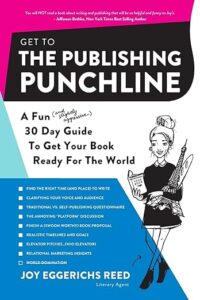
If they want to be traditionally published, my agent has written a book called Get to The Publishing Punchline, and it’s by Joy Eggerichs Reed. In there, she tells you and instructs you how to write a book proposal. So if you’re writing nonfiction, you do not write the whole book if you would like to be traditionally published. I’m talking about New York houses, Random House, HarperCollins, all of that. You have to have a literary agent to be published there. In order to get a literary agent, you have to have a proposal and three chapters. She teaches you in the publishing punchline how to write that proposal, and then you submit the first three chapters of your book. If you’re writing fiction, you can write a proposal, which will put you ahead of the crowd, but you also have to have written 80,000 words, the whole manuscript.
Because writing a novel is a very hard thing, and the editors have to see that you can pull it off, the whole story arc and all of that kind of stuff. So if you’re writing nonfiction, you want to be traditionally published, you have to write a proposal that could be anywhere between 10 and 30 pages. It’s a business proposal asking the question, “Will this book sell?” It’s kind of a boring thing, but it is an important thing to ask. It will also show an analysis of what’s out there in the market and why your book is different and why you think it will sell. It’s a sales tool. It’s not an artsy tool; it’s a sales tool. But she teaches you how to do that in that book.
It sounds very useful. And why do you have a daily podcast? That’s kind of unheard of, right? They’re mostly weekly shows, like this one is weekly. I have two shows that’s two a week and that’s overwhelming already. So I can’t imagine daily.
Yeah, because I’m totally crazy. So I was in a mastermind group for about 10 years. And at the time, I had a book come out called Jesus Every Day, which was a devotional going through the whole Bible in a year. I asked my mastermind what could I do to uniquely launch this book? I’d been launching lots of different books. And they said, “You should do a daily podcast called Pray Every Day.” And I said, “You people are dumb.”
But as I thought about it, I thought, ‘Oh, this is kind of interesting.’ So that was about seven and a half years ago, and the format was super simple; it’s five minutes. I read a portion of the Bible for about two and a half minutes, and then I pray based on what I’ve just read for my listener. There are thousands of episodes now, millions, I think, getting close to 6 million downloads now.
And is it a bit of work? Yes, it’s a lot of work, but I do batch it to help my sanity. That’s why I do it, because they said so, and now I can’t stop because my people won’t let me.
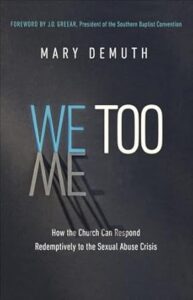
Yeah, you got a fan base that’s relying on you. You must have gotten some great feedback from people who have had their lives changed because of your podcast.
I have, and from all over the world, which was really my point in the first place, was to reach people, obviously, who could speak English, because I speak English, but all over the world. And it’s been really fun to hear people from different countries have fun things to say about it.
Now with AI, you can have it in every language.
That’s true.
Coming back to AI for the full circle moment here. What would be the last parting bit of wisdom that you want to share with our listeners or viewers?
I’ll go back to book writing. If you want to write a book and you feel passionate about it and you feel like you can’t contain it anymore, there is a way to get it published. And if you’re not interested in like fame or glory or lots of sales and all of that, you can always get an account on Amazon called KDP, and you can upload your book to that space and have it in your hands in a few days, and it doesn’t cost anything.
The only thing that costs is paying for the copy that you have uploaded, but that you receive back. If you’re thinking there are too many obstacles to it, there are no obstacles. And one of the things that’s actually kind of fun is you can create the best Christmas gifts on KDP. You can put pictures in there, you can do a recipe book, and there are stories from your family. Most people who wanna write stuff down, they say it’s for their grandchildren. Well, you can do that on Amazon, and you can hand out books this year.
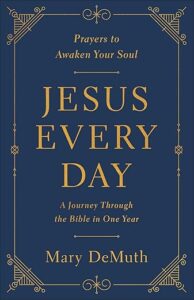
That’s great. I was just thinking about. I have grown daughters, and one of them used to write these really long stories, and I just came across one of them recently, and I thought this could be a book someday. Well, it could be a book tomorrow, right? Because you just upload it to KDP, and you can have a printed book too, right? With CreateSpace or whatever they call it now at Amazon.
They eliminated CreateSpace. So now it’s all just called KDP. So once we upload it, it can be e-Plus physical. And there’s now an AI audio component as well. They’ve kind of revamped everything.
That’s a great gift idea. And how does our listener or viewer potentially work with you? I know you’re very selective about being a literary agent, but what about courses they could take from you? Or, of course, they could buy your books and read those, subscribe to your podcast. What would be ways that they could learn and grow from your wisdom?
My main website is marydemuth.com, and my literary website is marydemuthliterary.com. And then for those struggling with sexual abuse, I have another website called wetoo.org. Those three will be able to cover all the bases.
And you have some art too. I was looking at your Etsy store.
I also have art, and you can find that on marydemuth.com as well.
You’re, as I said earlier, prolific, not just with writing, but just all creative endeavors. You’ve really made a mark in the world already, and I’m sure you’ve got great things to come. So congratulations on all your success.
Thank you, listener. Now you go out there and spread your light in the world, and we’ll catch you in the next episode. I’m your host, Stephan Spencer, signing off.
Important Links
Connect with Mary DeMuth
Books
Businesses/Organizations
Film
People
Previous Get Yourself Optimized Episode
YouTube Videos


